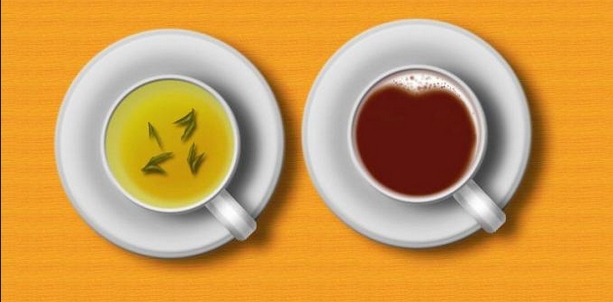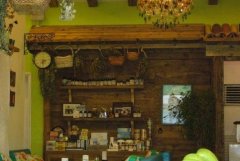The story of tea and coffee in those years the relationship between coffee and tea

Original title: fall in love with "Oriental Beauty"
Huang Jing, China Youth Daily (11 pages, October 29, 2014)
There are often jokes on the Internet that compare "tea" and "coffee" to the East and the West, and there are often people in life, such as my father. "I am used to drinking tea, unlike you coffee drinkers, Westernized."
At this time, I have no choice but to hide my face, but I am complaining in my heart: do you know how much the ancient European people loved tea?
All they could do was to sing "you are my little tea" to the square with a loudspeaker.
It is said that during the Qianlong period of the Qing Dynasty-- the years when the emperor promised Gulun and filial piety to the son of Hefei, and the monarch and subjects became in-laws-- the United States was engaged in an independent revolution, and the revolutionaries shouted, "all men are created equal." the Creator gave them certain inalienable rights "left Great Britain and updated his creed as" born to hate tea. "
Why?
To draw a line with the British Empire. Yes, tea reminds them not of the east, but of "the symbol of British tyranny".
The British do love tea so much that it is enough to compose a moving love song. In those days (at the end of the 18th century), the average resident of England and Wales consumed nearly 1 kilogram of tea per person per year, which could make about 400 cups of tea, enough to drink one cup a day. For the British, tea is not easy to buy. It comes all the way here and is often mixed with other plant leaves. But even if they know that tea is adulterated, they still buy it.
More people are going to buy tea on the black market:
"the smuggler Andrews made an appointment tonight to bring six pounds of Xichun tea at 11:00. He surprised us by whistling under the living room, "an 18th-century English priest wrote in a diary." I gave him some Geneva gin and paid him 1.7 shillings a pound. "
Priests buy contraband goods! All we can say is that everyone works hard for caffeine.
An anthropologist once studied that the most popular term in the world is the name of four caffeinated drinks: tea, coffee, cocoa and Coca-Cola. These uplifting, exhilarating drinks have their own names in almost every language on earth. Alcohol and tobacco are familiar addictions, but they are not used as much as caffeine. David Courtlett, an American historian, wrote a book devoted to addiction and finally sighed that the most underestimated thing before writing the book was how widespread caffeine addiction was.
For the same reason, tea is used by people in the highlands to feed loaded horses in China and by aristocrats in London.
In the era when tea was first encountered, Europeans were not familiar with coffee. Tea was first shipped to Europe by merchants in 1610, and five years later, coffee beans were first sold to Venice as an exotic addiction. However, for more than a century, the price of tea in Europe remained so high that it was so expensive that aristocrats drank it with elegant etiquette in gold-rimmed cups.
A diseased tea tree in Taiwan produces white-haired tea, which is disliked by locals, but is shipped back to England by Europeans to dedicate it to Queen Victoria. After the queen drank the dragon Yan Dayue, she personally named it "Oriental Beauty".
When the admiration for beauty comes to this point, the Chinese are impolite. If you want to buy tea from here? Pay taxes. Then again, at least in the late 8th century AD, that is, the Tang Dynasty, drinking tea was already a national hobby of the Tang Dynasty.
How can we be so sure?
Because in the ninth year of Zhenyuan in Tang Dezong, a salt and iron inspired his mind and looked at the tea with a small eye, so the court began to levy a tea tax! This greatly helped Emperor Dezong to make money, and he earned an extra 400000 yuan in tea that year. Then the tea tax went away and the price kept rising, leaving most of its companions far behind. Half a century after the tea tax was levied, the Datang government earned only 70,000 yuan from the national mining and metallurgical tax in one year, which is not as good as the tea tax in a county.
This fine tradition was inherited by future rulers. The reason why the British in the 18th century wanted to buy smuggled tea was because the government imposed heavy tariffs on tea. More than half of the tea is smuggled into Britain: the free cargo space allocated to the captains by the East India Company is bound to be filled with good tea, and by the time the ship approaches the British coast, the smugglers' boats are already waiting in line; on the other hand, other smugglers buy tea from other European countries, evade customs and sell them at low prices in Britain.
The smugglers are said to have been graciously taken care of by officials from European countries and warmly welcomed by British consumers.
They later encountered another problem: because the output could not keep up, the tea from the Qing Dynasty became more and more expensive. This time, the businessmen from Europe were not vague at all, so they went to India and Ceylon to grow tea. Retailer Lipton has also made a new mistake: selling Ceylon tea directly, selling only one shilling a pound, making a small profit and quick turnover.
After that, tea became an affordable drink for the poor in Europe.
This is the end of the 19th century. After two hundred years of fighting wits and bravery, the British people are finally able to drink a mouthful of cheap tea.
Unlike tea, in the 1770s, a group of colonists boycotting tea stood up. Accordingly, coffee was a patriotic drink under the Stars and Stripes. Some scholars believe this is why coffee is so loved by Americans today. In particular, this kind of drink, with extremely low tariffs and close origin, will soon be cheap enough to be given away by organizations such as food relief stations or bazaars.
And tea? If you can go to Great Britain today, the English afternoon tea that still smells like antique, the canned tea that can be seen everywhere in shops, and even the "coffee or tea" taken for granted by waiters in every restaurant, maybe you will agree with this: the love song to tea has not been finished yet.
Important Notice :
前街咖啡 FrontStreet Coffee has moved to new addredd:
FrontStreet Coffee Address: 315,Donghua East Road,GuangZhou
Tel:020 38364473
- Prev

It is clear that caffeine has a certain effect on the growth and development of children.
A new study shows that coffee and cola have some negative effects on children's growth and development. The study found that even a low dose of caffeine equivalent to half a bottle of cola or a cup of coffee can have an effect on children's blood pressure and heart rate. In addition, the researchers also found that caffeine affects the heart
- Next

Coffee part V History-Professional Coffee
Large multinational coffee companies are purely focused on coffee, as a professional product can not be casually drunk, but also in the company this is a new department, specialty coffee has emerged in the coffee industry. Professional coffee is something new now, but the downside is that it takes coffee out of its rightful place. Pure Ikalama coffee beans, baked for a certain time
Related
- Beginners will see the "Coffee pull flower" guide!
- What is the difference between ice blog purified milk and ordinary milk coffee?
- Why is the Philippines the largest producer of crops in Liberia?
- For coffee extraction, should the fine powder be retained?
- How does extracted espresso fill pressed powder? How much strength does it take to press the powder?
- How to make jasmine cold extract coffee? Is the jasmine + latte good?
- Will this little toy really make the coffee taste better? How does Lily Drip affect coffee extraction?
- Will the action of slapping the filter cup also affect coffee extraction?
- What's the difference between powder-to-water ratio and powder-to-liquid ratio?
- What is the Ethiopian local species? What does it have to do with Heirloom native species?

